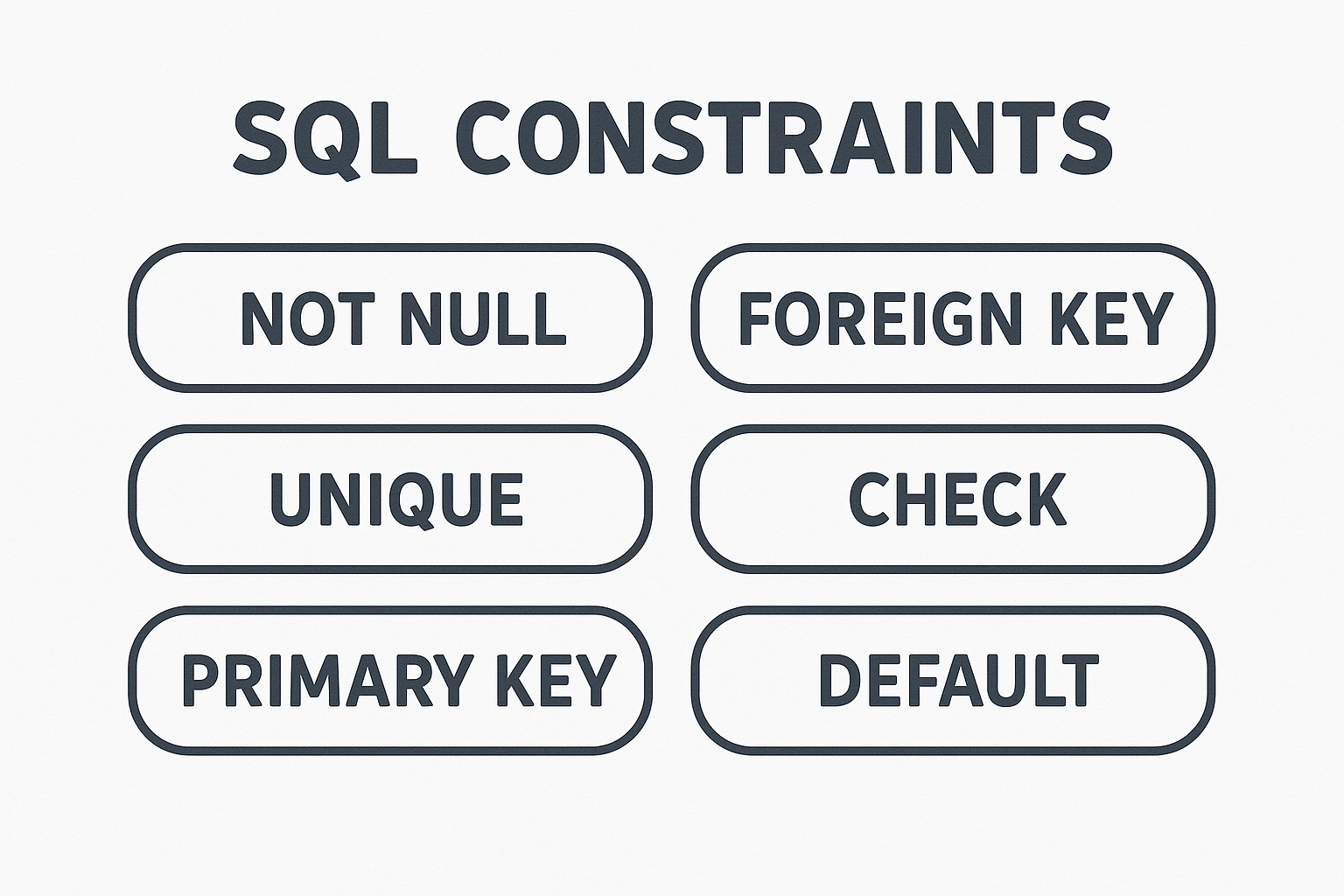Sql Constraints Overview
SQL Constraints Overview
**SQL constraints** are rules applied to table columns to enforce data integrity, accuracy, and consistency in relational databases. This visual highlights six fundamental constraint types: NOT NULL, UNIQUE, PRIMARY KEY, FOREIGN KEY, CHECK, and DEFAULT. The NOT NULL constraint ensures that a column cannot have null values. UNIQUE guarantees that all values in a column are different. PRIMARY KEY uniquely identifies each row in a table and cannot be null. FOREIGN KEY creates a link between two tables and enforces referential integrity. CHECK ensures that values meet a specific condition, and DEFAULT provides a default value for a column if no value is specified. Moreover, these constraints help prevent invalid data entry and ensure database reliability. Therefore, understanding SQL constraints is essential for effective database design and rule enforcement.
Key Features of SQL Constraints
- NOT NULL: Ensures a column must always contain a value.
- UNIQUE: Prevents duplicate values in a column.
- PRIMARY KEY: Combines NOT NULL and UNIQUE to uniquely identify rows.
- FOREIGN KEY: Links data between tables to maintain relational integrity.
- CHECK: Validates values based on a defined condition (e.g., age > 18).
- DEFAULT: Sets a default value when no explicit value is provided.
What’s Included with SQL Constraints
- Side-by-side layout of the most used SQL constraints.
- Clear function labeling for each type of rule.
How to Use SQL Constraints
- Apply during table creation:
CREATE TABLE users (id INT PRIMARY KEY, name VARCHAR(50) NOT NULL); - Use ALTER TABLE to add constraints later:
ALTER TABLE orders ADD CONSTRAINT chk_total CHECK (total > 0);
Ideal Uses and Placement
- Use to enforce business rules, data integrity, and referential links.
- Ideal in all relational database schema designs for validation and control.
SQL Constraints Specifications
NOT NULL: Prohibits nullsUNIQUE: Enforces uniquenessPRIMARY KEY: Unique + NOT NULLFOREIGN KEY: References a primary key in another tableCHECK: Validates logical expressionsDEFAULT: Assigns default values
Explore More Resources
- Explore schema tools: Products Page
- Get SQL design tips: Our Blog
- Master data rules: AI & QA Resources
- Expert reference: W3Schools SQL Constraints Guide
Why Choose SQL Constraints Guide?
SQL constraints ensure your data is accurate, complete, and consistent. Moreover, they safeguard your database against invalid inputs. Therefore, this guide is critical for every database professional.
Enforce Data Integrity with Confidence!
Master SQL constraints—build robust databases with the right rules from the start!
$3.99
- ✅ Instant Download Available
- 🖼️ Ultra High-Resolution 4K PNG + JPG (4096×6144, 300 DPI)
- 🖨️ Prints Beautifully up to 13.6×20.5 inches
- ♾️ Unlimited Downloads
- 🔁 Commercial Use & Resale Allowed
- 💾 Digital Product – No Physical Item Shipped
- 📥 Instant Access via Download Link Post-Purchase
- 🛒 Want a Physical Print?
You can upload your downloaded artwork to services like Printful, Zazzle, or your local print shop to create stunning physical prints.
All 4K images include the label "4K" in their title.
If your selected image does not include "4K", please contact us for your complimentary upgrade.









